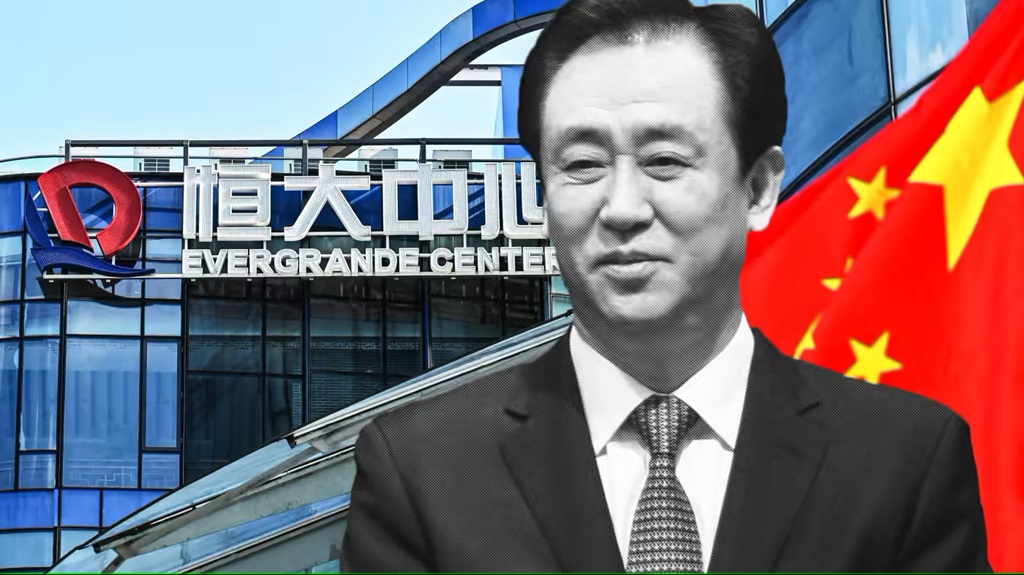China’s property giant Evergrande and its founder, Hui Ka Yan, have been accused of inflating sales by US$78 billion in the two years preceding the company’s debt collapse.
The country’s financial markets regulator punished the company’s mainland unit, Hengda Real Estate, $583.5 million. Mr Hui also faces a lifetime ban from China’s financial markets. In January, a Hong Kong court ordered Evergrande to liquidate.
The China Securities Regulatory Commission (CSRC) placed much of the blame on Mr Hui, previously China’s richest man, for allegedly instructing Hengda to “falsely inflate” its annual results in 2019 and 2020.
Mr Hui was also fined $6.5 million, according to the company’s statement with the Shenzhen and Shanghai stock markets. Evergrande did not immediately respond to a BBC request for comment.
Mr Hui, the company’s chairman, was placed under police surveillance in September as part of an investigation into suspected “illegal crimes”.
The announcement comes just days after the CSRC pledged to crack down on securities fraud and defend small investors with “teeth and horns”. Evergrande has been the poster child for China’s real estate crisis, owing more than $300 billion in debt.
Liquidators have been engaged to assess Evergrande’s overall financial situation and identify viable restructuring strategies. This could include seizing and selling assets with the money used to pay off outstanding debts.
However, the Chinese government may be hesitant to cease work on property developments in China, where many would-be homeowners are waiting for homes they have already paid for.
Problems in China’s property market are having a significant impact, as the sector accounts for roughly one-third of the world’s second largest economy. Since 2021, when authorities implemented steps to limit the amount of money that large real estate developers may borrow, the industry has been under severe financial pressure.
Since then, several significant real estate corporations have defaulted on their loans. Official figures released on Monday indicated that China’s property investment declined 9% in January and February compared to the previous year.
New construction starts also fell by 30%, marking their largest dip in more than a year.
China’s Staggering Real Estate Crisis
The current position in China’s real estate sector exposes a troubling level of debt, which is sending shockwaves through the market.
In recent years, the debt-ridden Chinese property industry has received a lot of attention throughout the world. With approximately 108.7 billion yuan of debt maturing in the next 12 months, the sector’s issues are far-reaching. The crisis began with regulatory policy tightening in 2020, which laid the groundwork for the current situation.
This scenario has worsened, with major players such as China Evergrande declaring bankruptcy due to massive debt burdens. The industry’s troubles go beyond individual companies, affecting the overall economy and investor confidence.
As a fundamental pillar of China’s economic landscape, the property sector’s volatility has worldwide ramifications, raising concerns about financial stability and market impact.
Amid lending programs and liquidation orders, China’s real estate crisis highlights the fragile balance between economic growth and debt sustainability.
The sector’s continued challenges serve as a cautionary tale, showing the difficulties of managing debt dynamics in a key business. Stay tuned as we explore deeper into the complexities of China’s debt-ridden real estate sector and its shifting impact on the global economic environment.
In the coming year, the Chinese property market will face significant debt, which will linger over developers like a gloomy cloud.
The astonishing amount of debt due in the next 12 months paints a picture of financial stress and uncertainty. With a major chunk of debt approaching maturity, developers are under tremendous pressure to satisfy their obligations.
The repercussions of this large debt due in the near future are far-reaching, affecting many stakeholders in the housing market. Developers are at risk of defaulting on their loans, which could trigger a chain reaction that causes financial distress not only for the companies involved, but also for investors, creditors, and the overall economy.
The approaching debt repayment deadlines instill a sense of urgency and tension in an already shaky market.
China’s Housing Prices Decline for the 8th Consecutive Month
China’s Housing Prices Decline for the 8th Consecutive Month








